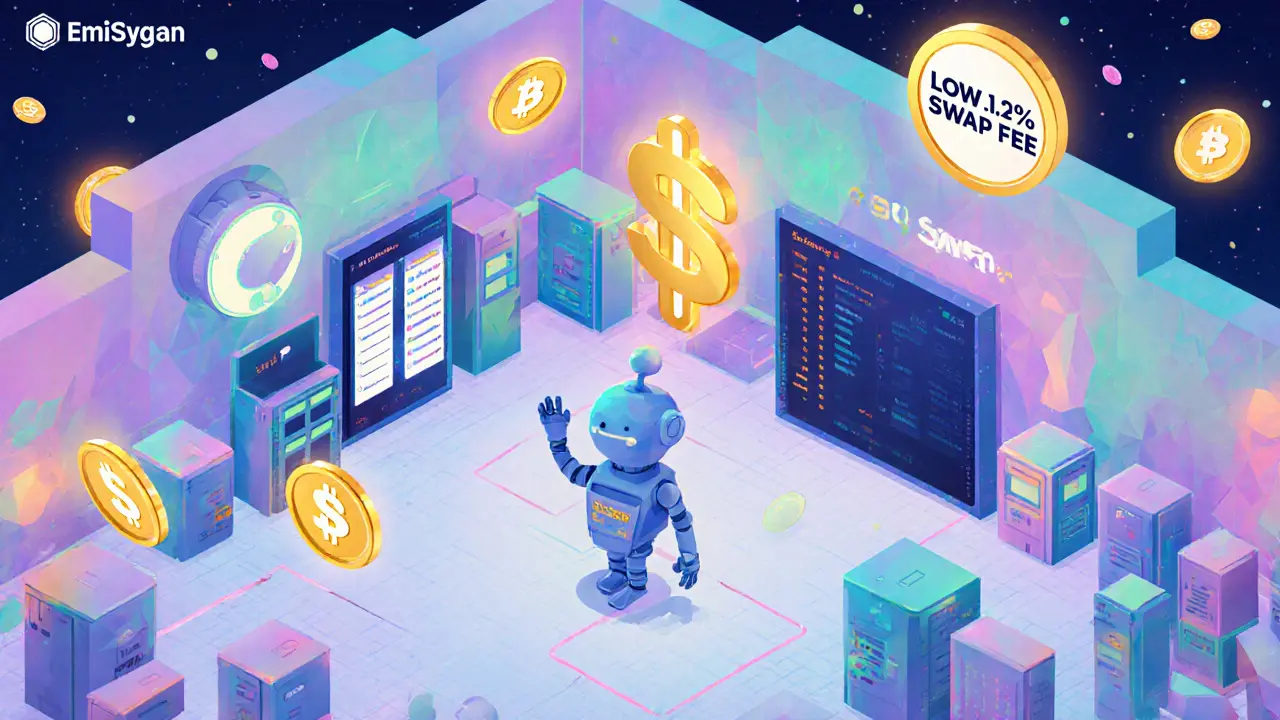A detailed review of EmiSwap, covering its reward system, security, how to add liquidity, and a comparison with major DEXes to help you decide if it's right for you.
Decentralized Exchange Comparison – What to Look For
When you start a decentralized exchange comparison, a side‑by‑side look at permissionless platforms that let you trade without a middleman, you instantly see which DEX gives you the best mix of speed, cost and safety. Also known as a DEX ranking, this process helps you keep control of your keys while finding the most efficient market.
A solid comparison includes liquidity, security, fees and governance. Those four pillars are how traders decide where to put their money. Think of it like shopping for a car: you check the engine power, safety ratings, fuel cost and driver‑assistance features before signing the contract.
Liquidity Pools – The Engine Behind Every Trade
First up, Liquidity Pools, collections of tokens that fund trades on a DEX define how quickly you can swap assets without slippage. Bigger pools mean you can move larger amounts without shifting the price. When you compare DEXs, look at total value locked (TVL), the number of supported pairs and how often the pool is rebalanced. A DEX with shallow pools may look cheap but can cost you more in hidden price impact.
Liquidity also ties directly to fee distribution. Most DEXs reward LPs with a slice of each trade, so a platform that offers higher rewards can attract more capital, which in turn deepens the pools. This feedback loop is a key reason why liquidity, fees and token incentives are tightly linked.
Security – How Safe Is Your Money?
Next, Security, the set of audits, smart‑contract checks and bounty programs that protect a DEX from hacks determines whether you can sleep at night. Look for public audit reports, bug‑bounty payouts and a track record of quick patches. Some DEXs run on battle‑tested codebases like Uniswap’s V3, while others launch with brand‑new contracts that may still have unknown bugs.
Security isn’t just about the code. It also covers how the platform handles user keys. Non‑custodial designs mean you keep your private keys, reducing the risk of a centralized breach. However, if a DEX mixes custodial features for convenience, you need to weigh that against the extra control you’d give up.
Trading Fees – The Hidden Cost of Every Swap
Then there’s Fees, the transaction and protocol charges you pay each time you trade on a DEX. DEXs usually charge a base protocol fee (often 0.3%) plus an optional network gas fee. Some platforms let LPs set custom fee tiers, giving you the ability to choose lower‑cost routes when volume is high.
When you compare fees, consider both the percentage taken and the gas price volatility on the underlying blockchain. On a congested network, a cheap‑looking fee can balloon once you add the gas cost. Some DEXs mitigate this by offering layer‑2 solutions or cross‑chain bridges that lower the overall expense.
Governance Tokens – Who Calls the Shots?
Finally, Governance Tokens, native assets that let holders vote on protocol upgrades and fee structures add a community layer to the comparison. Tokens like UNI, COMP or SUSHI give users a say in future changes, which can affect everything from liquidity incentives to security upgrades.
When evaluating a DEX, check the token’s distribution, voting power concentration and recent proposals. A well‑governed platform often rolls out improvements faster, making it more adaptable to market shifts.
Putting it all together, a good decentralized exchange comparison looks at how liquidity pools fuel trade efficiency, how security protects your assets, how fees impact your bottom line, and how governance tokens shape the platform’s future. These elements are interconnected: deep liquidity can lower slippage, strong security builds trust, lower fees attract users, and active governance drives continuous upgrades.
Below you’ll find a curated list of articles that dive deeper into each of these areas – from detailed security audits to fee‑optimizing strategies and the latest governance token news. Use them to sharpen your own DEX comparison checklist and make smarter trading decisions.

